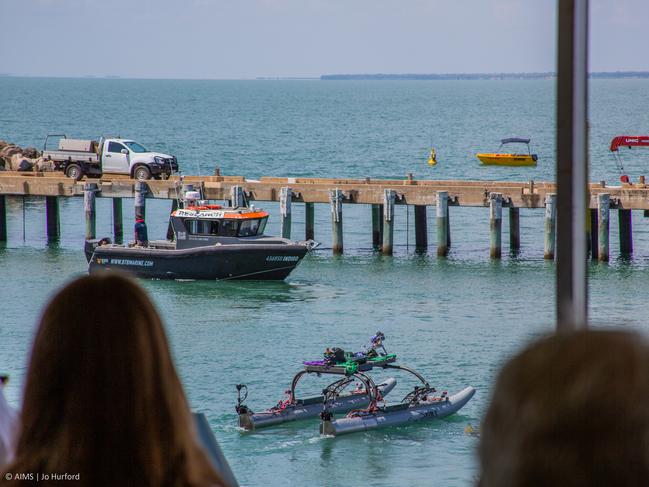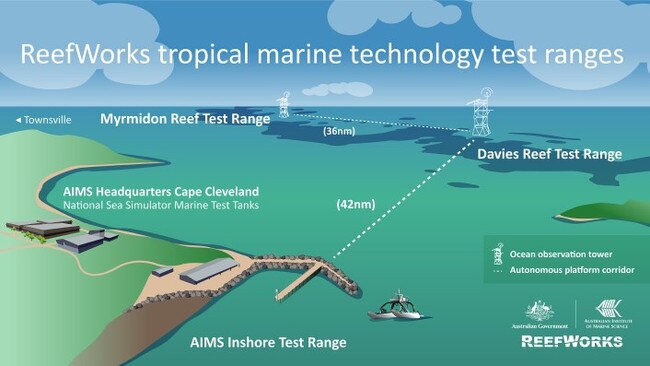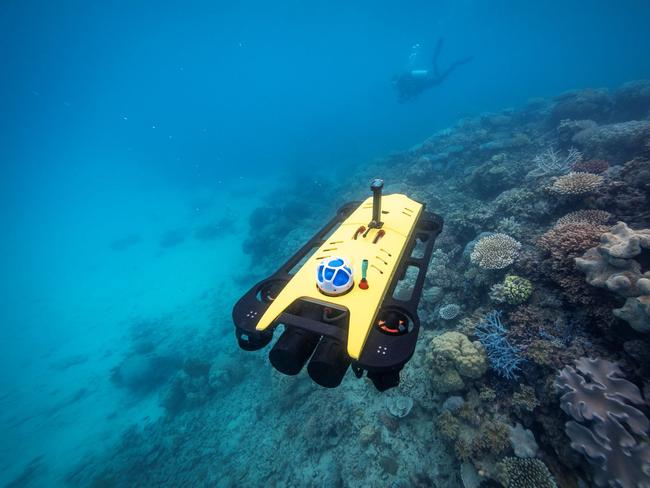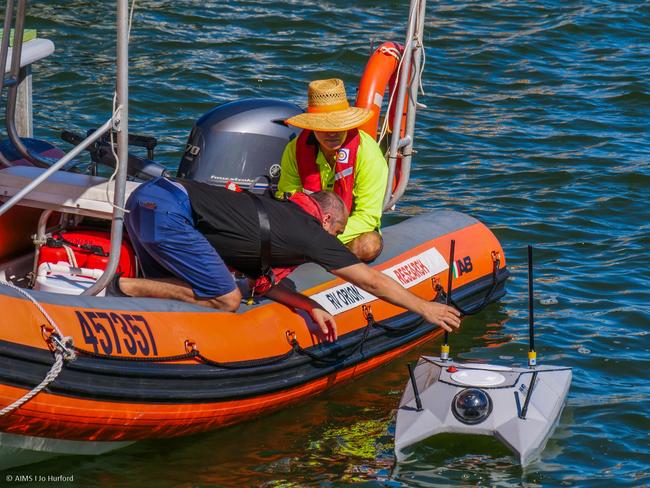ReefWorks wins exception to permit rule for aquatic drones
Aquatic drones will no longer need permits to be tested from a Townsville site. See the waterproof robots buzzing around North Queensland.

Townsville
Don't miss out on the headlines from Townsville. Followed categories will be added to My News.
The relaxing of a major regulatory shackle could be a significant development for research into aquatic drones in North Queensland.
Uncrewed vessels can now be tested at the Australian Institute of Marine Science’s ReefWorks inshore test range, off the coast of Cape Cleveland near Townsville.
ReefWorks project director Melanie Olsen said for the first time in Australia there was now a place where individual developers could go without having to first secure a permit.
“It eliminates a significant amount of red tape as well as the expensive possibility of not securing a permit in time for a planned trial,” Ms Olsen said.
“It will also allow ReefWorks to share the lessons we learn with regulators to help reduce risk and drive legislative changes.”

The five-year agreement allows for permit-free testing and evaluation of vessels up to 12m in length, travelling up to 20 knots within the test range.
The test range comes under an Australian maritime “regulatory sandbox” advocated by Trusted Autonomous Systems, the marine institute and AMC Search.

There are three test ranges which the marine institute uses. One range is at Davies Reef about 100km northeast of Townsville. The Myrmidon Reef range is about another 70km north of the Davies range.
The inshore range to be used for these autonomous vessels is in Chunda Bay, at the foot of the institute and the end of Cape Cleveland Rd.

The marine institute is working with private company Trusted Autonomous Systems to develop Australia’s autonomous marine technology industry.
The Australian Maritime Safety Authority says remote-operated and autonomous vessels are used for oceanography, hydrography, offshore drilling and gas and scientific research.
The federal government doubled the Australian Institute of Marine Science’s funding this year, as the offices were in a mouldy and rotting state of disrepair.
More Coverage
Originally published as ReefWorks wins exception to permit rule for aquatic drones





